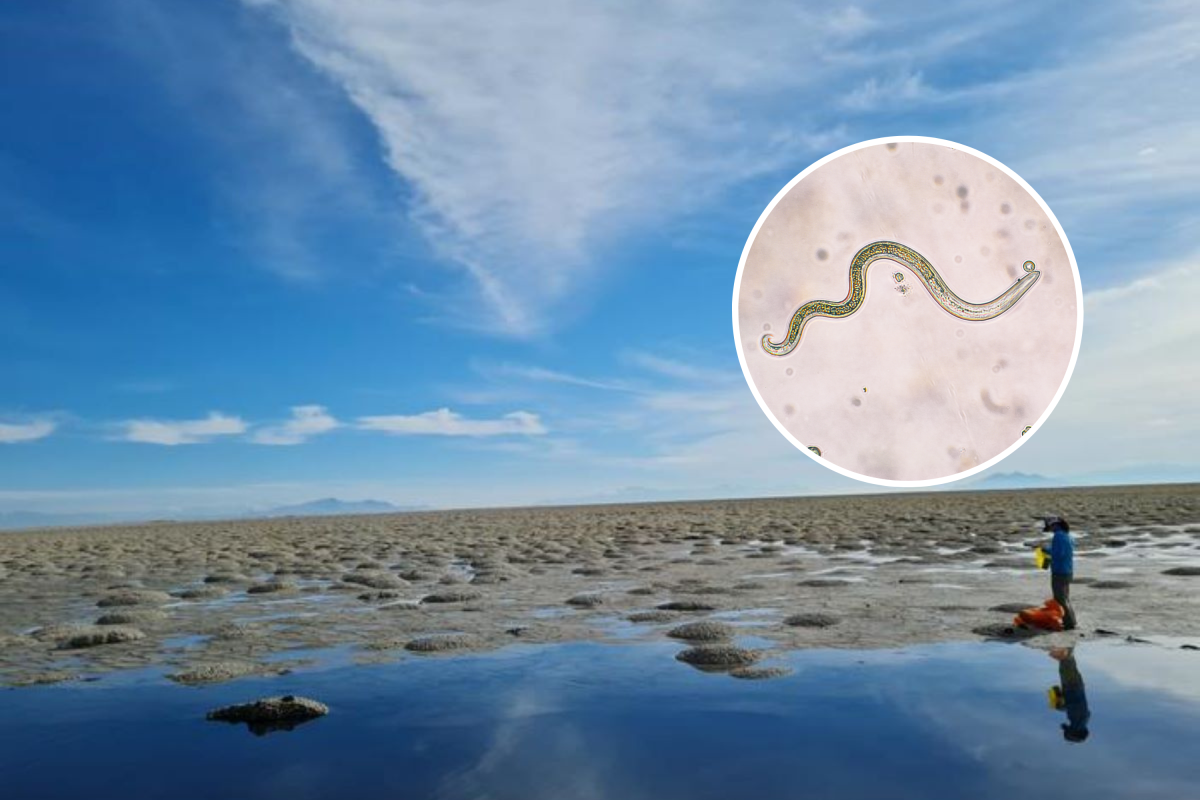Strange critters have been found living in the waters of Utah's Great Salt Lake.
There have been suspicions that roundworms, also known as nematodes, were living in the lake for a while, but none have ever been found there until now.
Researchers at the University of Utah discovered thousands of the tiny worms in the lake's microbialites, which are reeflike structures on the lake bed. Their findings are published in the journal Proceedings of the Royal Society B.
The first attempts to discover these worms were unsuccessful when researchers looked at the sediments of the lake bed. However, biology professor Michael Werner and postdoctoral researcher Julie Jung decided to take things a step further and examine the reeflike lakebed.
That is when they made the "significant discovery."

The Great Salt Lake varies from being two to nine times saltier than the ocean. This means it hosts a variety of interesting organisms. Until now, only two multicellular animals, brine shrimp and brine flies, were known to live there, the study said.
These roundworms will now be added to the list. There are around 250,000 known species, and they can be found in the deep oceans and deep underground. The Great Salt Lake is the saltiest area where they have ever been found, according to the study.
"Just what is the limit of animal life? What environments can animals actually survive? That captures some imagination about looking at other planets where we might find complex multicellular life," Werner, the study's senior author, said in a summary of the findings. "If there was life also on Mars, it might have looked a little bit like the [lake's ultra-salty] North Arm right now."
There was more to this study than just discovering the critters. The research team tried feeding the water's bacteria to the worms to see how they would react to the lake's water. As the lake is 50 times saltier than its usual habitat, it was important to find out how they reacted.
Those fed the bacteria were still alive after 24 hours, but those given the species' usual diet died quickly. This suggests that the worms are highly adaptive to their environment. The next steps will be to research the mechanisms of their ability to adapt in further detail.
"Even today we're discovering these amazing things about this lake that's been sitting on our doorstep for 170 years," said Brigham Young University biologist Byron Adams, a leading expert in nematodes. "It's an amazing system that Michael has worked to better understand."
These worms have been found in some of the most hostile environments on the globe, such as Antarctica, the study reported. But to find them in the Great Salt Lake was particularly surprising to them.
"I'd looked there myself for them, but I didn't look in the same places where Michael went," Adams said. "I had initially started to work up in the North Arm, where conditions are obviously a lot more extreme, and I didn't find things there. I just didn't put in the time. I didn't put in the effort to sample more rigorously or more thoroughly."
Uncommon Knowledge
Newsweek is committed to challenging conventional wisdom and finding connections in the search for common ground.
Newsweek is committed to challenging conventional wisdom and finding connections in the search for common ground.
About the writer
Robyn White is a Newsweek Nature Reporter based in London, UK. Her focus is reporting on wildlife, science and the ... Read more
To read how Newsweek uses AI as a newsroom tool, Click here.






